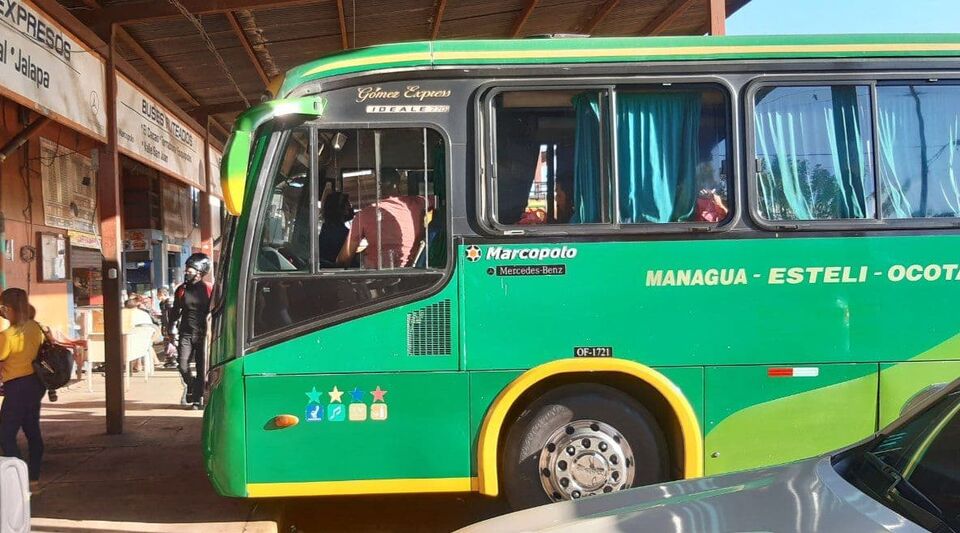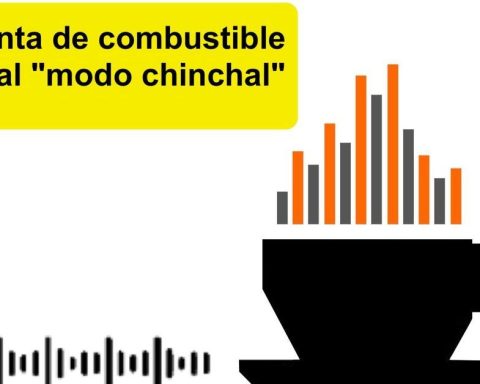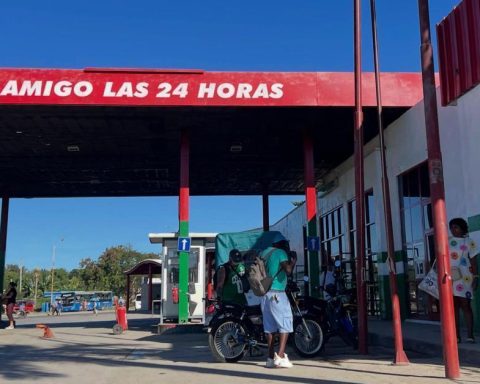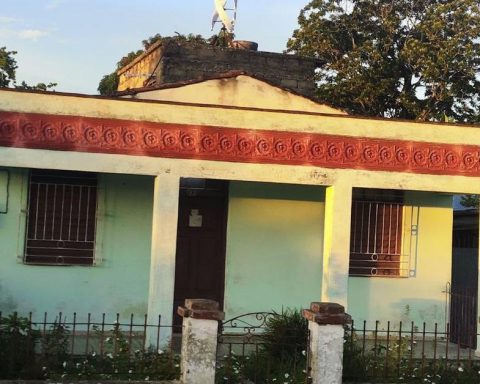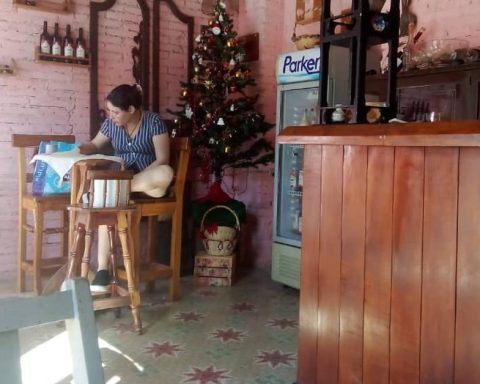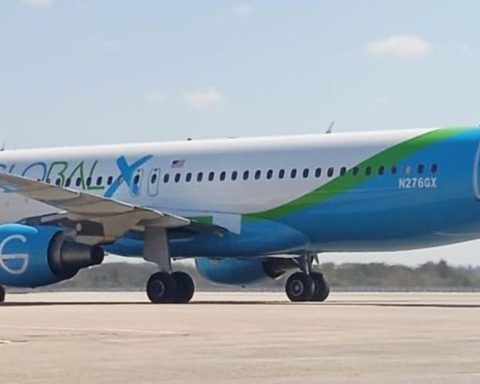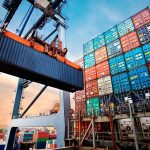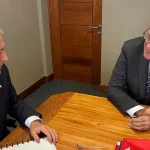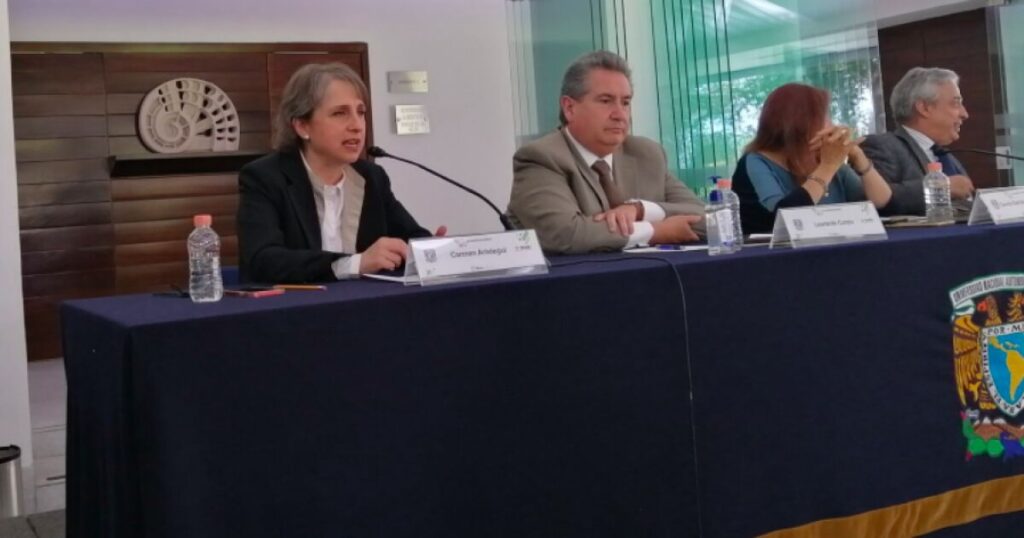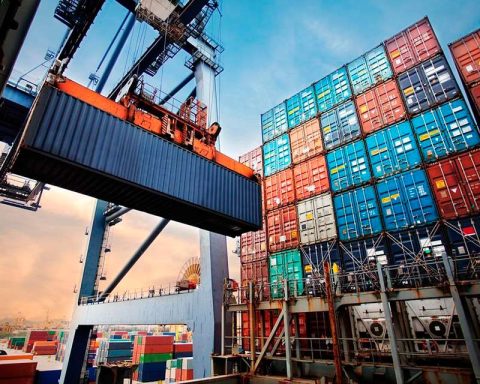I had never left Cuba in my life, so migrating was the most difficult decision I have ever made. I had to say goodbye, with pain, to the people I love, my children, my grandmother, my mother, my father, my wife, my brothers. There is only one reason to have done it: despair.
Thanks to a relative outside, I managed to arrange a ticket to travel to Nicaragua. My plan was, like that of so many others, to later cross Honduras, Guatemala and Mexico, until I reached the United States. Before leaving, many feelings collided within me. On the one hand, I felt very sad and disillusioned with my country, but at the same time, I was looking forward to finally having the opportunity to carve out a future for my children.
During the trip to the airport, I trembled with anguish: I felt that I was leaving everyone behind and that I had a very uncertain future ahead of me. At the José Martí there was a queue of 150 people. Even to escape from this country you have to queue.
The vast majority of passengers talked about the same thing: where they planned to leave, how much their ‘coyotes’ charged them, who they would travel with…
I had a very stressful time at Immigration, when, upon checking my details and passport, they asked me to wait. After a few minutes that seemed like forever, an official looked at me and said contemptuously: “Ah, he’s from the Archipelago.”
I had given my name at the beginning, when Yunior García Aguilera formed the group, but I didn’t think that it would leave a mark on me. The officers told me to be quiet, but the passengers on my flight were already in the waiting room and I was still there. Finally, they let me go: “Have a good trip,” the official told me with indifference. Later I have heard more similar testimonies: they maintain uncertainty until the end. Until the plane took off, it was not clear to me that they would not lower me.
The vast majority of passengers talked about the same thing: where they planned to leave, how much they were charged for their coyotesWho would they travel with… No one around me was going to Nicaragua as their final destination. It was the mass exodus before my eyes.
The treatment was not very good upon arrival in Nicaragua. As soon as I arrived, I was scammed by buying a Claros phone card for $20 that was supposed to have 13 GB of data and unlimited social networks, among other benefits. The next day, I had to recharge it for 100 cordobas, about three dollars.
Observing Managua from the plane, all lit up, shocked me. At the airport and on the way to the hotel, many advertisements, cafes, restaurants. The hotel was nothing to write home about, but it was cozy and had a pool. However, no one bathed; It is hot in Managua and no Cuban bathes, because everyone knows what they are going there for.
The first day I went out with a guy I had met and we passed by a gas station. My impression was enormous when entering that tiny gas station and seeing the immense variety of products they sold, all kinds of chewing gum, chocolates, soft drinks, hot dogs… And that still hadn’t arrived at Walmart. Here I can’t even describe what I felt when I saw all that abundance, all that huge space, with so much and so much merchandise, so varied. I didn’t even know where to walk.
So I felt very sad. I didn’t understand why in my country there weren’t these things, why we have to go through so much trouble to buy a piece of frozen chicken or a mincemeat or some eggs to be able to eat. When I got back to the hotel I talked to my family on WhatsApp and I got a lump in my throat, I felt very powerless to be able to have all that here and that they didn’t have it there.
The coyotes they came to pick up many Cubans here during the first day and a half that I was there. I met two of them. One was a medical student in Cienfuegos and he told me that he had to take advantage of the opportunity, because in the third year they are regulated and they cannot leave Cuba. The boy has family abroad and paid $6,000 to be dropped off at the border. He was nervous and I tried to calm him down by encouraging him.
One was a medical student in Cienfuegos and he told me that he had to take advantage of the opportunity, because in the third year they are regulated and they cannot leave Cuba.
The other was called Lazarito, a slightly confused boy, from Havana. His father is in the US and paid for his ticket, in addition to the $7,000 coyote. He was even more nervous, because the coyotes they had to come pick him up at 6 in the morning. At 8 they arrived and finally he left with them.
My trip began one day at 6:30 in the morning, when a taxi picked me up and left me at the Managua bus station. There I boarded a bus to Ocotal, in the north of the country.
It was a very calm trip, very beautiful, the landscapes caught my attention, the fields of Nicaragua are planted, not like those of Cuba. I talked on the way with Brenda, a 38-year-old Nicaraguan who lives in Ocotal but works in Managua, and she told me that she has three children. She works in the house of a man who is rich, she told me, taking care of the children, and she only gets four days off a month. Those four days she takes a bus, takes care of her family and returns, and one more month locked in that house. She has been doing it for 5 years, she says, to ensure a future for her children.
I got off at Ocotal, which despite being a small town has many things, something that continues to impress me wherever I go. There something caught my attention that I did not see in Managua: a lot of Sandinista propaganda. I arrived at my guide’s house, where I rested and was able to taste the Nicaraguan beer La Toña, very tasty, very similar to the Cuban Cristal, which brought back many memories. In the afternoon, we left for the border, a fairly long journey but in a very comfortable van.
It was night when we arrived at the border point, which connects the municipality of Jalapa, in Nicaragua, with a very small town called Trojes, in southern Honduras.
There, we got out of the car in the middle of a field and had to cross an area of crops that had an extension of about 400 meters in the middle of total darkness. There was practically nothing to be seen and we had to walk fast so that the police would not catch us. On the other side there was a fence of spikes and a man with a motorcycle was waiting for me. The guy sped it up to million and it was cold. My forehead froze, but in just three minutes, I was already in Trojes.
________________________
Tomorrow: Caravan of Cubans through Honduras: we were 30 motorcycles, with 30 mounted Cubans
________________________
Collaborate with our work:
The team of 14ymedio is committed to doing serious journalism that reflects the reality of deep Cuba. Thank you for joining us on this long road. We invite you to continue supporting us, but this time becoming a member of our newspaper. Together we can continue transforming journalism in Cuba.
